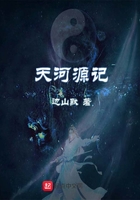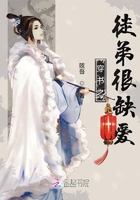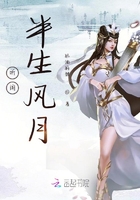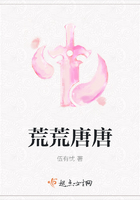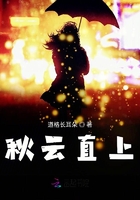So let me turn to my second story, one that brings us back a little closer to home. It’s a story about two people from Stanford‘s founding era. One of the great figures who taught on Stanford’s faculty in the early days was William James, the distinguished Harvard psychologist and philosopher and the brother of the greatest of all American novelists, Henry James. Not far from this very spot, he once gave a talk called“Stanford‘s Ideal Destiny.”In it he conjured a vision of Stanford 100 years in the future-just about now. He said:“Can we not frame a vision of what Stanford may be a century hence, with all the honors of the intervening years rolled up in its traditions? Not vast, but intense; devoted to truth; radiating influence, setting standards; shedding abroad the fruits of learning; mediating between America and Asia.”
Now that spirit-so obviously ambitious, world-beating, almost immodest in its energy and reach-still pulses robustly on this campus today.
I’m sure you have been touched by it; indeed, have contributed to it. It‘s among the things that make Stanford great and distinctive. It’s probably among the reasons why you came here.
But another spirit abides here as well-and it, too, comes down to us from the earliest days of the university, and I hope it‘s one that we’ve managed to pass on to you, along with all the skills we‘ve presumably imparted to equip you to be world beatingly victorious out there in the fabled rat race that awaits you.
When David Starr Jordan, Stanford’s first president, arrived in California, he took himself around the state to recruit students for the brand new university. In the standard little talk he gave, he did not dwell especially on the newness of Stanford, or its ambition, or its energy, or how it would equip those young Californians to make their way in the hugger-mugger Darwinian struggle of the frontier West. He struck another kind of note altogether-a note that sang of the values of serenity and contemplation. He spoke to those young people more than 100 years ago not so much about the necessity of making a living as about the importance of making a life. He talked about the value of the humanities-about what used to be called a liberal arts education. He put it this way:“To turn from the petty troubles of the day to the thoughts of the masters is to go from the noise of the street through the doors of a cathedral. If you learn to unlock those portals, no power on Earth can ever take from you the key. The whole of your life must be spent in your own company, and only the educated man is good company for himself.”
Now it‘s appropriate for us, I think, to remind ourselves on a day like this of both of these legacies from Stanford’s founding. The one as much as the other makes up the essence of this place, and together they compose the gift that we hope you will take away from here.
My third story is very brief, and it leads to my concluding piece of advice. In those early Stanford days, in the end of the 19th century, it wasstill common, especially out here in the West and even more especially in the regions where the railroad had not yet reached, for people to travel by stagecoach. And most stagecoach lines in those days offered three categories of ticket: first class, second class and third class. A first-class ticket gave the passenger a guarantee that no matter what happened en route, he or she would arrive at the destination in good shape. A second-class ticket guaranteed arrival, but also provided that in case of difficulty en route-a mudslide that might have closed the road or a broken axle on the wagon-the passenger could be asked to step out of the coach for a period of time and wait until the problem was overcome. A third-class ticket carried the stipulation that in case of difficulty the holder of such a ticket would be expected to get out, to go to work with pickax or shovel, put a shoulder to the wheel and help to get the show on the road again.
Stanford is a first class institution, and the sheepskin you‘ll be handed tomorrow is a first class ticket to the rest of your life. My advice to you is don’t take it. I don‘t mean don’t take your diploma-of course you should take it. You‘ve earned it and your parents would be aghast if you didn’t take it. But don‘t take the first- or even the second class route through life. Go third class. Don’t be too comfortable. Don‘t be a bystander. Get out and make things happen. Get dirty. Put your shoulder to the wheel. Make the world move. And don’t make the mistake of thinking that military service is something that can be safely left to the other passengers.
Finally, the promised translation. The document I want to translate for you is two lines of a poem by Gwendolyn Brooks. She said:
Exhaust the little moment. Soon it dies.
And be it gash or gold it will not come again in identical disguise. Here‘s the translation: Carpe diem.
Good luck, and Godspeed.
汉语回放(梁春阳译)
我要讲三个短小的故事,一个是关于历史的反思,一个是一条忠告,最后一个是一段译文。
第一个故事是有关我自己非常喜欢的一位教授的。出于这个原因,这个故事是自传体的。我在你们这个年龄,临近毕业的时候,我想是离开校园去到处走走看看的时候了。在不算太晚的时候,我发现了一些我想与大家一起分享的事:以前大学是最容易的部分,现在变难了。我知道大学看起来似乎很难--这些论文啊,测试啊,实验和习题集啊,但是有三样东西使它们变得容易:自由、宽容和放纵。所有这三样东西都即将从你们的生命中消失。
想想自由的部分。考虑一下你将不再拥有的东西:不再有午睡时间,不再有春假,不再有为期三周的圣诞假期,不再有三个月的暑假,当你觉得很想逃课的时候也不能再逃课,不能再选择你想学的课程,不能再避开上午11点前的课程--最痛苦的是,不能在白天看电视。








